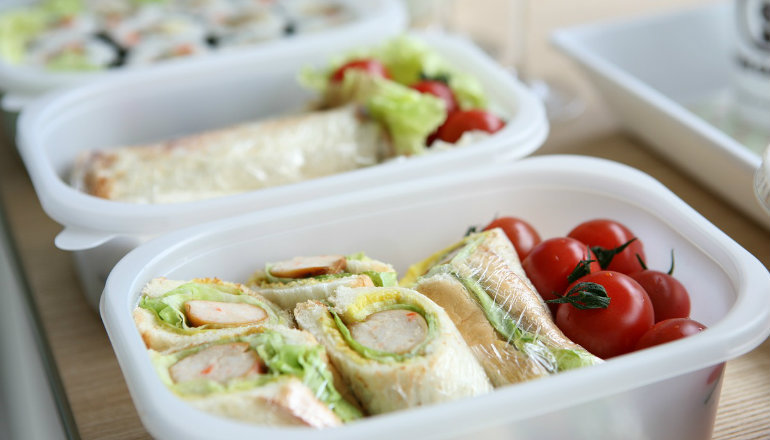
Meal prepping has always been a big part of the bodybuilding and figure scenes. Of necessity, bodybuilders take their nutrition more seriously than just about any other athlete, so it makes sense that meal prepping would be such a mainstay of the sport. Most meal preppers cook a bunch of food ahead of time, and then use a custom cooler bag to tote around a single day’s worth of meals in their highly organized, stackable plastic cartons.
Because I always associated those little containers with the bodybuilding scene, I never seriously considered prepping. I do work out, after a fashion, but let’s just say nobody will be grating cheese on my abs anytime soon.
The reason I got into meal prepping was not because of abs, but because of seasonal allergies. I read somewhere that you can get relief from allergies by eliminating certain foods from your diet and I decided to try it. In order to execute my plan, I had to prepare all my food and bring it around with me everywhere I went.

I got off to a rocky start. Lugging heavy Pyrex containers in a flimsy a plastic shopping bag while wearing flip-flops is not a great idea. Eventually, a bodybuilder buddy of mine rescued me from my stupidity and hooked me up with Isolator Fitness bags. Since then, meal prep has been smooth sailing.
Sadly, I still have allergies, but on net the experience has been a major win because I’ve realized many unexpected benefits from meal prepping. Here are just a few:
1. Prepping Saves Time
Even if all you do is boil a packet of ramen every time you need to eat, you can still save a lot of time by meal prepping. This is because the time you save isn’t just the cumulative time you spend in front of the stove. The real time savings comes when you eliminate context switching. In other words, the gear up and wind down from cooking or going out to eat adds a considerable amount of time to the overall effort of eating. When your meals are prepped in advance. you don’t lose time driving to a restaurant or leafing through recipe books.
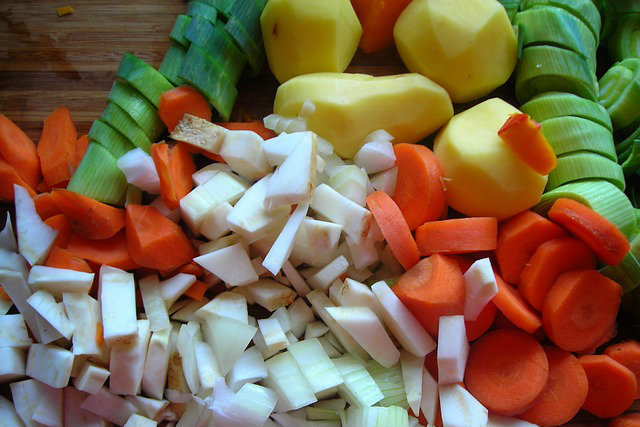
2. Prepping Is Healthy
As someone who has done a bit of nutrition coaching over the years, I have made the following observation: people aren’t really addicted to crappy, processed foods. People are addicted to convenience. After a hard day at work, most normal people are too depleted to cook a real meal. Why bother cooking when it’s so convenient to hit the drive through and bring home a bucket of deep-fried goodies!
Meal prepping upends this dynamic. If you have a healthy meal ready to eat, it is actually less convenient to wait in line at the drive-through. If you engineer your life so that healthy foods are the path of least resistance, you end up eating healthy foods as a rule rather than an exception.
3. Prepping Is Portion Control
For many years I was a Zone Dieter. I faithfully counted out almonds and weighed and measured my macros. Zone was a great solution when I was childless, single, and lightly employed. After my first child, the Zone Diet went out the window. Getting through life on three hours of sleep is hard enough without having to squint at a food scale.
After breaking up with the Zone, I soon discovered that eating to satiety only works if you are metabolically stable. If you are metabolically deranged, eating to satiety almost always results in over-eating. Meal prepping helps to curb over-eating because once the container is empty, you just stop eating.
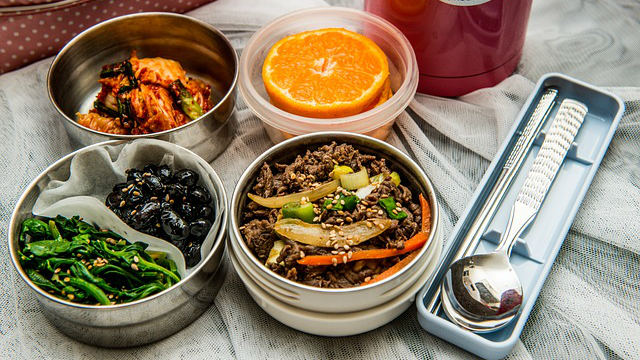
4. Prepping Makes You Smarter
Researchers in behavioral psychology have learned that willpower is like a muscle. The more you use it, the more tired your will becomes. By the end of the day, your decision-making abilities have been exhausted, which is precisely why bars and ice cream shops are open late.
Meal preppers avoid this fate because their decisions related to food have already been made, sparing mental strength for more important tasks. Heavy hitters like Steve Jobs, Mark Zuckerberg, Albert Einstein, and President Obama are always seen in the same clothes because of an express intent to avoid decision fatigue. Perhaps the iPhone would not exist if Steve Jobs had stood in front of his closet every day, trying to decide between Dockers or Levis.
5. Prepping Saves Money
When I first started prepping, I noticed I had a lot more money left over every month. I never thought of food as a major expense, but one day I sat down and did a month-over-month comparison. It should come as no surprise that prepping reduced my restaurant expenditure to effectively zero. What was a surprise was that I spent less at the grocery store, too.
This is because meal preppers go to the grocery store with a defined purpose. Preppers make fewer impulse purchases and end up spending less than shoppers who are browsing for stuff that looks good in the moment. Going to the grocery store without a plan makes you extremely vulnerable to the assaultive marketing that the food industry has perfected.
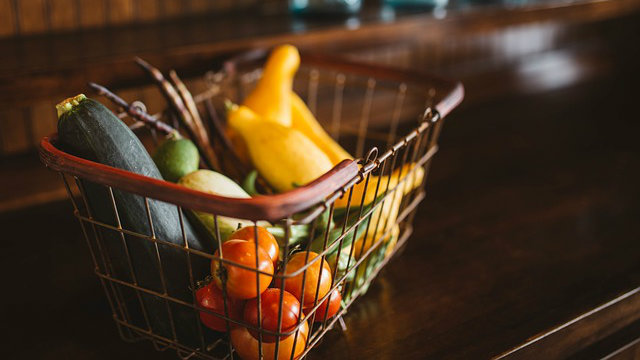
How to Get Started With Meal Prepping
1. Pick the Right Cooler Bag
There are many cooler bag suppliers in the marketplace. Nowadays you can buy cooler bags in every conceivable size, color, and configuration. Here are a few companies to choose from:
- Isolator Fitness
- Six Pack Fitness
- Fitmark
Most suppliers offer a starter pack consisting of a bag, containers, and an ice pack. Even if you buy all the parts separately make sure to buy an ice pack. Cooler bag ice packs are specially designed to take up minimal space and fit into special compartments.
2. Pick the Right Containers
You will definitely want to buy containers that are BPA free, freezer safe, and microwave safe. Selecting the right size is a trickier problem. Isolator Fitness offers containers at 12oz, 16oz, 28oz, and 38oz (some of which are pictured below).
Which size is right for you depends on many factors. To give you a general sense for what might be appropriate I will tell you that as a 45-year-old male who weighs 175 pounds and trains hard once a day, I eat three 16oz containers every day before 4:00PM. I also have a regular meal at home in the evening.
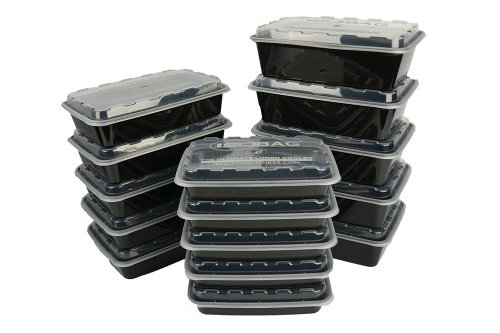
3. Plan Your First Meals
Because you will generally eat prepped meals away from the comforts of home, you will probably want to follow these general guidelines for meal selection:
- Avoid soups. Unless you want to pack a pair of dry pants to change into when the inevitable happens, stay away from soups and broths. They are a hassle.
- Make meals that reheat well. Plan meals that you can reheat easily in a toaster oven or microwave. Cheesy sauces and mayonnaise-based dressings tend to reheat poorly. Fish is also very tricky to reheat, particularly in the microwave.
- Make meals that don’t require a knife. Meals that require a lot of cutting are tricky when you are balancing a meal container on your lap at the gym. Chicken breast, steak, chops and the like are fine, but you will want to cut them up into fork-sized pieces.
The Whole Life Challenge is the perfect opportunity to incorporate meal prepping into your life. As long as you are going to embrace deliberate, mindful, healthful eating, why not try meal prepping? Once you experience the benefits you can’t go back!



































